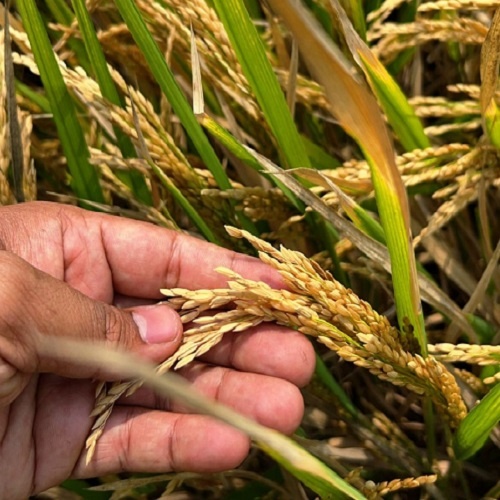Natural Farms (FPC), in collaboration with the National Institute of Rice Research in Hyderabad, has achieved a success in agriculture. They’ve successfully cultivated a biofortified rice variety with increased zinc content, aiming to combat malnutrition and bolster crop productivity.
This variety, tailored for Southern India, has thrived in Maharashtra, particularly in Chandgad, Kagal, and Radhanagri Block within the Kolhapur zone. Its cultivation has led to a increase in crop output.
Mr. Abhijeet Patil, the Company Director, expressed immense satisfaction, emphasizing that this rice variety not only revolutionizes traditional farming practices but also promises a significant income boost for rice growers. He highlighted the extensive collaboration over two years with the National Institute of Rice Research in Hyderabad, crediting their guidance in cultivating this variety.
Officials from the Indian Institute of Rice Research have stated that we have been working with this FPO for the last two years. We congratulate this FPO for undertaking impactful work in this new era of biofortification. In the future, we will continue to provide guidance to such sincere FPOs.
Termed ‘high-zinc rice,’ this variety holds potential for increased market value in supermarkets, benefiting both farmers and consumers. Government-led initiatives distributing this nutritionally enriched rice could substantially improve the nutritional intake of communities in need.
The Zinc-Rich Biofortified Rice has been meticulously developed through advanced breeding techniques, boasting significantly higher zinc levels of 22 ppm in polished rice and 27 ppm in brown rice. This surpasses common rice variants like BPT 5204, IR64, and Kalanamak in zinc content and overall yield.
Maturing within 135 to 140 days, this rice type exhibits robust stems preventing bending, expansive leaves enhancing photosynthesis, and substantial grain weight. Its resistance to prevalent rice diseases like bacterial leaf blight adds to its appeal.
This variety could play a pivotal role in addressing ‘hidden hunger,’ prevalent among populations lacking essential nutrients like zinc in their diets.
(The Press Release has been shared by Natural Farms)











